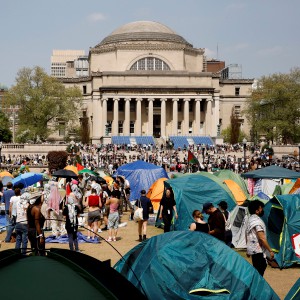Guest columnist Jonathan Kahane: One ‘Deluge’ that hits home, another that missed

FILE PHOTO
| Published: 03-19-2024 4:36 PM |
A couple of months ago my son recommended a book to me. You’d think I’d have learned by now to treat any advice he proffers with extreme caution. Against my better judgment, I reasoned, he’s 37 years old now, married, raising a family, and an accomplished surgeon. Perhaps I could take a chance and follow his suggestion this time. Silly me.
He proposed that I read “The Deluge” by Stephen Markley. It’s a dystopian futuristic novel about how climate change will destroy the human species unless we do something — now. Even if we do, it may very well be too late. It’s 900 pages, no pictures!
When I was in ninth grade, my English teacher assigned the class “Moby Dick” and expected us to finish it in two weeks. Please! I believe every student, except me, read Cliffs Notes instead of Melville’s classic. When a teacher or professor makes an assignment like that, I take it as a dare. I read every word, yup, including the “Cetology” chapters. (It didn’t do me much good on the exam, though.)
“The Deluge” is an extremely well-written book that describes in excruciating detail where the world is heading if we don’t do something to control the catastrophic rain, snow, fire, heat, cold, wind, and uncurbed pollution that is already taking its toll on the planet and the human predicament.
I must warn you that to read this book is a project, but my purpose here is not to give a book review, though I would give it 24.17 stars.
Now to the point: One of my weaknesses (or strengths depending upon your perspective) is that my mind often wanders on to tangents when dealing with complicated topics like this one. While reading about the myriad effects of these horrific climate catastrophes, I found myself recalling a recent “storm” and its effects on much (not all) of Hampshire County.
More specifically, I began to deliberate on how storms affect school closings. It also led me to think about a related pet peeve of mine that negatively affects the amount of time students are in class and the resultant influence on test performance.
For days we were warned about the “storm of the year” approaching our valley. It was going to paralyze the region on Tuesday, Feb. 13. We were told to prepare ourselves.
Article continues after...
Yesterday's Most Read Articles
As a result of this “preparedness,” the powers that be canceled school in several districts early on Monday, Feb. 12, due to the arrival of the “the deluge.” Well, not a flake was seen. Maybe they should consider using the “Farmers’ Almanac” to set the cancellation dates a year in advance.
Please don’t misunderstand. I’m all for caution and safety when it comes to our kids, but classes used to be canceled the morning of “the deluge,” and it always worked out fine. In some instances classes were even let out at noon the day of the storm. It’s tough on the parents to be sure, but we managed and had options in place.
I could hear kids all over the district celebrating “The Perfect Storm” — no school, video games, great skiing, the early start to baseball spring training, and the physics test postponed.
Allow me to piggyback on the topic and the effect of missed classroom time. There is a current debate about the use of the MCAS standardized test to assess student achievement. I am the first to admit that I don’t know enough about this particular exam to have an informed opinion on the matter. I do feel, however, that something can be said for the data that a reliable and valid (using those terms’ statistical definitions) standardized test can provide. Recognizing that they all have shortcomings (the IQ test is a perfect example of that), they can give us important information.
For example, the PISA test, which rates various countries’ student performances in several academic disciplines, such as math, language and science, ranks the U.S. student body in the 18th position worldwide. When our students are scheduled for a half day of school, it‘s counted as a full day. 0.5+0.5=2? This must be “The New New Math.” No wonder we rank 18th.
At least we’re ahead of Slovenia. There are 180 school days per year in Massachusetts. There are 245 school days per year in China. You may complain about my statement — that is, until your kid (or you) gets fired by the Chinese CEO of the organization you each work for.
Jonathan Kahane lives in Westhampton.






 Guest columnist Teresa Amabile: Undermine education, undermine our future
Guest columnist Teresa Amabile: Undermine education, undermine our future Guest columnist Liz Brown: Abortion care is health care
Guest columnist Liz Brown: Abortion care is health care Henry Lappen: Tango is alive and well in the Valley
Henry Lappen: Tango is alive and well in the Valley D. Dina Friedman: Jewish group decries ICE’s crackdown on freedom of speech
D. Dina Friedman: Jewish group decries ICE’s crackdown on freedom of speech
